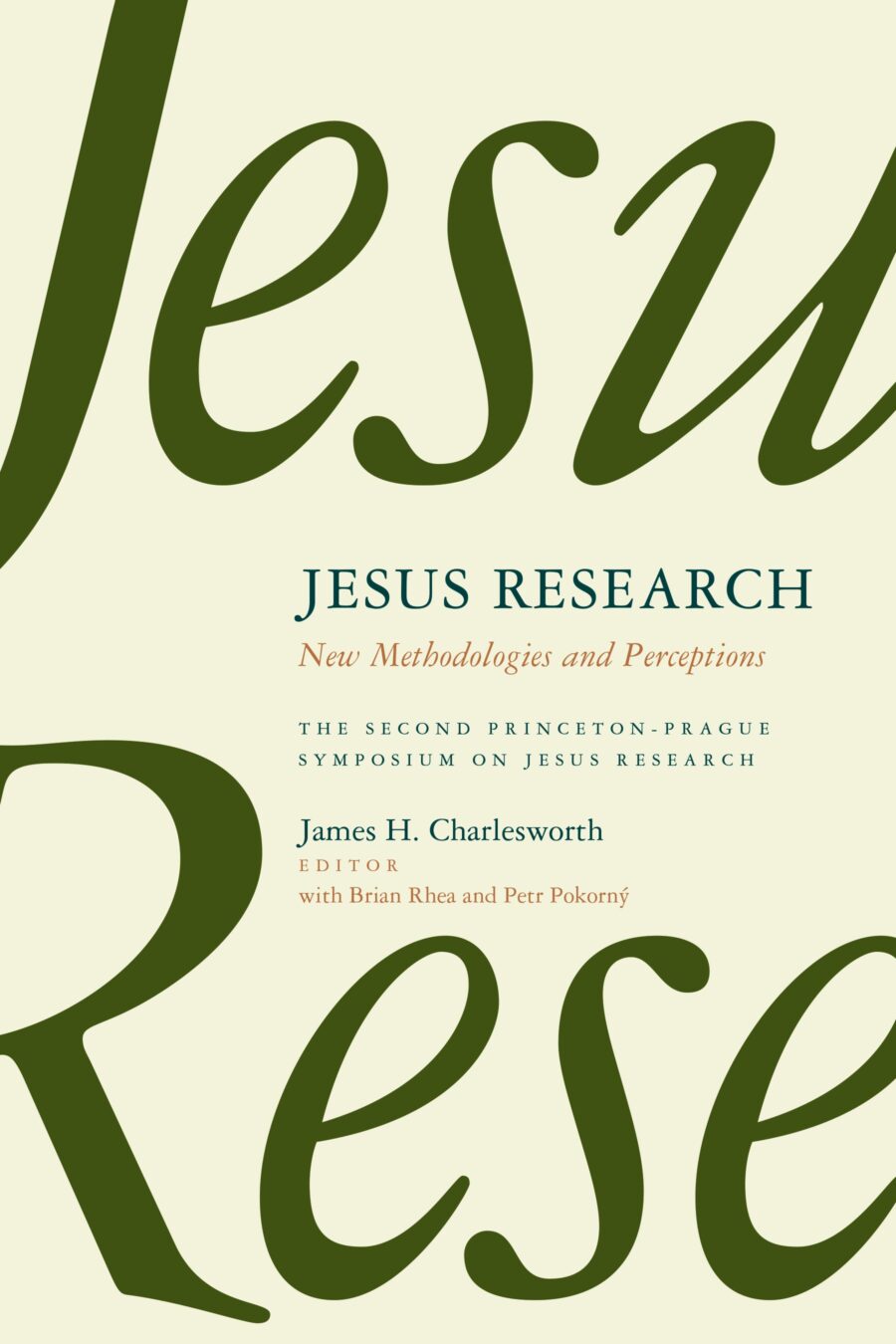The recently released compendium, Jesus Research (2014), is a collection of papers originally presented at the Second Princeton-Prague Symposium on Jesus Research (2007). The volume combines the insights of at least 40 of the world’s leading scholars—a true “Who’s Who’ of specialists in Jesus Research” (Charlesworth, 1). Due to the sheer number of contributors, my review will necessarily be limited in focus. I offer a brief overview of the book’s contents, highlighting some of the major themes that arise. I conclude with some reflections on the overall project and its stated ideological commitments.
Part 1 of the volume, “Contexts” (17-466), is an excellent illustration of the methodological eclecticism involved in current Jesus research. The opening section, “Methodologies in Jesus Research,” sets the table for the entire volume by critically reflecting on issues that have plagued Jesus research ever since its inception. Particularly incisive is Stanley Porter’s critique of the ways in which Jesus researchers have gone about establish criteria of authenticity (82-99). The second section offers a foray into the material culture of Jesus of Nazareth. Contributors demonstrate the ways in which archaeology, topography, architecture, numismatics, sociology, and economics offer essential data for any historical reconstruction of Jesus. The third section, “Jesus within Judaism,” is, perhaps, the strongest section in the first half of the volume. Contributors offer focused treatments on everything from Jesus and politics (Horsley) to the perennial question of the relationship between the historical Jesus and the Christ of faith (Theissen). The fourth section, “Psychobiography,” is the shortest in the volume, represented by just two papers. Both papers offer something of an apologetic for the validity of psychological analysis in Jesus research.
Part 2 of the volume, “The Transmission of Jesus Traditions” (469-933), focuses primarily on the historical value of the textual sources used to conduct Jesus research. One of the more auspicious elements of its first section, “Sources,” is the topical overlap in certain papers. This presents the reader with several opiniones communes, or, at the very least, strong trajectories in the field. I note three. First, while Richard Bauckham and Werner Kelber offer very different models of oral transmission, they both firmly agree that the formgeschichtliche model cannot properly account for the way oral transmission occurs. Second, the papers by Craig Evans and Pheme Perkins demonstrate the growing consensus that extracanonical gospels are of little value in historical Jesus research. Third, the papers treating the canonical gospels illustrate just how far Jesus research has come in its conception of historiography—both ancient and modern. The final section, “Jesus’ Life and Teachings,” begins with an assessment of John the Baptist’s influence on Jesus, and ends, as one might expect, with a treatment of Jesus’ resurrection. In between these are a range of topics, including the somewhat surprising consideration that John Chrysostom’s interpretation of John 4 may have value for historical Jesus research!
On the whole, there is much to commend to this volume. Charlesworth and his team deserve a great deal of credit for compiling this collection. All contributions are first rate, and the “Selected Bibliography” (complied by Brian Rhea) solidifies the book as a must have resource. The book’s scope and diversity ensures that virtually every reader will find something of interest. Those new to the field will be glad to note that many papers read as topical introductions. For the more seasoned researcher, the collection presents an updated synthesis of the field. The only real quibble I have with the volume is with the stated ideological commitments of “Jesus Research” as articulated by Charlesworth. He states in the introduction, “Jesus Research is not (or should not be) tied to theological claims or concerns” (3). Several pages later he writes that Jesus Research endeavors to be “disinterested,” by which he intends, “a study of Jesus that is objective, inductive, and does not explore questions by imposing on them desired answers” (7). That this position is untenable is clearly illustrated by Charlesworth’s later engagement with Luke Timothy Johnson (460-2). Charlesworth expresses concern that Johnson’s position on the historical Jesus has the potential to elide into Docetism (462). This sounds, to this reviewer at least, very much like a theological concern. Indeed, Charlesworth’s primary apologia for “Jesus Research” (460-66) appears to be entirely driven by “theological claims and concerns.” In the end, then, one wonders if the word “disinterested” is really all that helpful.
The Bottom Line: Jesus Research offers readers an up to date account of the current state of Jesus scholarship, while also suggestively adumbrating future trajectories in the discipline. The book is highly recommended for all who have an interest in historical Jesus scholarship.
Review by Max Botner (mb274
University of St. Andrews





Leave a Reply
Your email is safe with us.